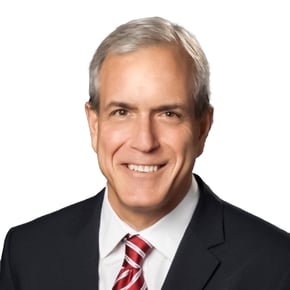By Bill Allen, Shefali Salwan & Steve Courington
Building capabilities to swiftly create value should start with a strategic reappraisal of your talent management practices.
Traditional talent selection, as our colleague Sandy Ogg puts it, is all about “seat empty, seat filled, job done”. That mindset and approach may have worked in years past when change was slow. Today, it’s just not viable. Businesses must constantly be adapting, constantly transforming who they are and what they do to keep up with the exponential pace of change.
The problem is a one-size-fits-all capability-building strategy not only overlooks that change but also undervalues the complexities of the context in which companies must deliver results. It also overlooks the crucial links between the work to be done to create value, the roles critical to delivering that value, and the talent in those roles.
Talent management processes and practices today should mirror the way we handle investment decisions: they should be rooted in evidence, sensitive to risks, and fine-tuned to the context.
Consider the potential return on investment in talent as you would your financial investments. Every hire, like every investment, is a context-dependent, time-bound opportunity.
In a previous article, our co-author Bill Allen mentioned three things organizations must provide today to help their leaders address the challenges of attracting, motivating, and retaining the top talent they need. One, a culture of personal growth and change. Two, the basic foundations of good management. And three, a new playbook for connecting talent to value. To this last point, we have found the Talent to Value™ playbook, conceived by Sandy Ogg and developed at CEO.works, to be game-changing in this regard, similar to Six Sigma in terms of its profundity and impact.
A role is more than just a seat to fill: it’s a gateway to value.
This statement sums up the core belief behind the Talent to Value philosophy. This innovative, iterative process for capability building involves forecasting the probabilities of value arriving in critical roles based on objective assessments of the context, the work, the talent, and related execution risks. The process itself evokes a more value-focused mindset: “Seat empty, seat filled, value delivered”. Using this dynamic, context-sensitive, and risk-aware approach, we have watched many client companies rapidly and repeatedly unlock significant value.
There are many more organizations, more than the team at CEO.works can serve directly, who could benefit from this approach. That’s why we are now involved in co-leading the signature program of the firm’s Talent to Value Academy (formerly known as the Value Coaching Certification Program).
THE TALENT TO VALUE ACADEMY
This signature program trains HR leaders in the 5 fundamental practices of the Talent to Value approach:
1. Identifying 4 to 6 value hotspots within the organization and defining the work to be done in each. These are the areas where significant value-driving work is occurring today and will occur tomorrow.
2. Generating a list of the 25 to 50 crucial roles that will undertake 80% of the value-driving work at these hotspots. Instead of relying on the org chart, this list is derived from a systematic assessment and assignment of the work at each hotspot, grouped into related Jobs To Be Done™ to specific roles. The list is then rank-ordered based on the anticipated contribution to value of each role.
3. Performing a role-by-role analysis of execution risks. By looking at risks inherent in both the work and the roles as they are designed, insights are gained into what will limit execution speed and/or jeopardize value delivery.
4. Assessing the readiness of incumbent talent to execute the role's tasks within the given context. This will always be an evidence-based examination focused on matching requisite capabilities and superpowers with the Jobs To Be Done; finding a good fit with the ambition, culture, and operational environment; and verifying the individual has relevant experience and a winning track record.
5. Constructing a “human capital balance sheet” for the company. Like a financial balance sheet, the human capital balance sheet will be based on simple numerical scores. The balance sheet will delineate the risks associated with the value, work, and roles; map these risks to the organization; and precisely pinpoint a select number of interventions at the role, hotspot, or organizational levels that can mitigate the most significant ones.
These immersive, capability-building sessions are delivered either virtually or through one of our in-person regional programs. Participants build skills as they apply our unique approach using cases in the session and receive support from experienced practitioners. Certification and mentoring continue for several months after the program as participants apply what they have learned to the value agenda and roles in their business (click here for further information and to register for a program).
Joseph A. Bosch, former DirectTV CHRO and NAHR Fellow, remarked after a recent program that “The Talent to Value workshop has really caused me to rethink a number of my approaches to building human capital in an organization.”
Is it time for your organization to move away from monolithic talent strategies? Do you want to start making talent decisions with the same degree of rigor reserved for investments? Contact us to set up a call.

